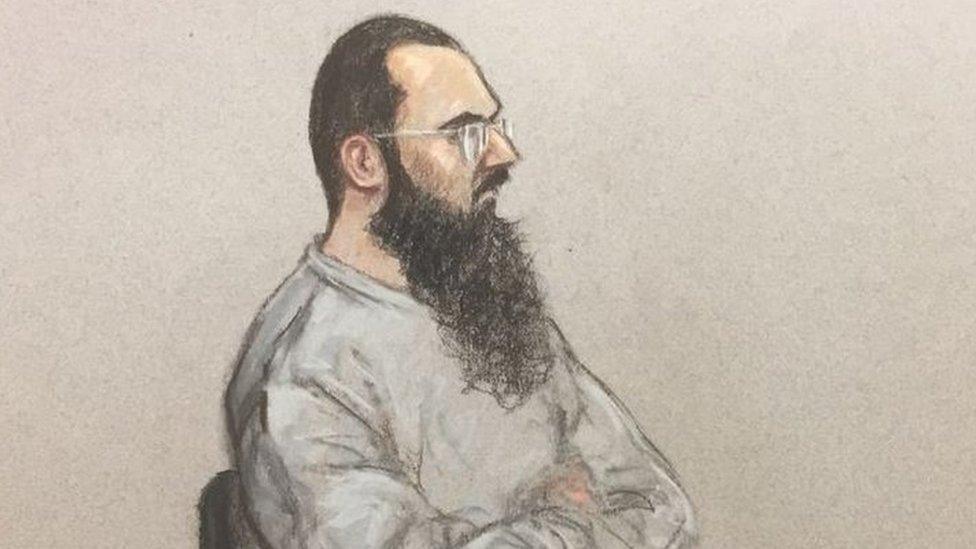Man who urged Prince George attack given life sentence
- Published
Husnain Rashid appeared to collapse as he was arrested at his home
An Islamic State group supporter who called for an attack on Prince George has been jailed for life with a minimum of 25 years.
Husnain Rashid, 32, of Leonard Street in Nelson, Lancashire, also posted messages threatening people travelling to the 2018 Fifa World Cup in Russia.
Judge Andrew Lees said Rashid made it clear the prince "and other members of the Royal family should be viewed as potential targets".
Rashid admitted four terrorism charges.
Rashid brought his trial at Woolwich Crown Court to a halt in May after two weeks of evidence with a dramatic change of plea at the end of the prosecution opening.
The court previously heard Rashid posted a photograph on a Telegram chat group of the prince at his school, super-imposed with silhouettes of two masked jihad fighters.
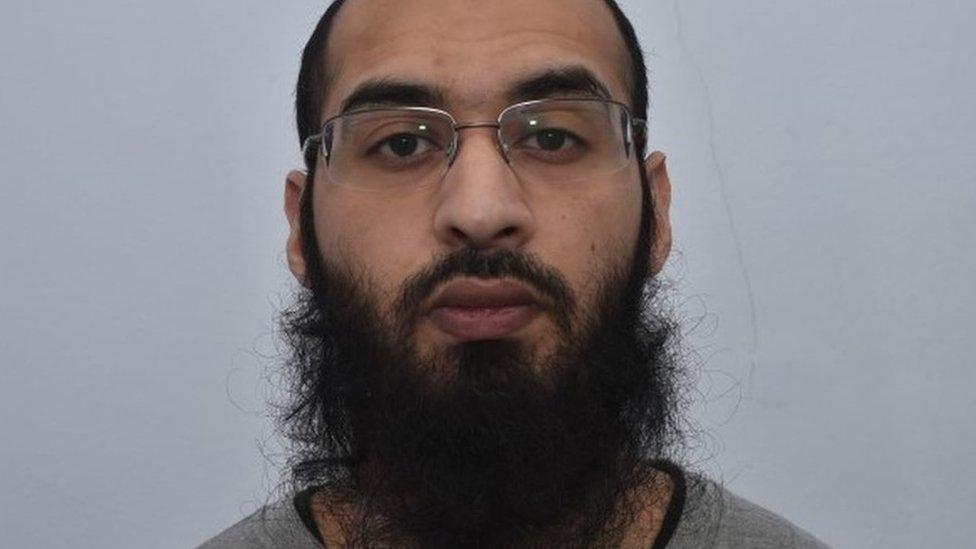
Husnain Rashid had had admitted four terrorism charges
Sentencing Rashid, Judge Andrew Lees said: "The message was clear - you were providing the name and address of Prince George's school, an image of Prince George's school and the instruction or threat that Prince George and other members of the Royal family should be viewed as potential targets."
The judge added: "You provided what you regarded as inspiration for suitable targets for lone wolf terror attacks.
"Attacks in Western countries were in your eyes the only suitable acceptable alternative to jihad itself."
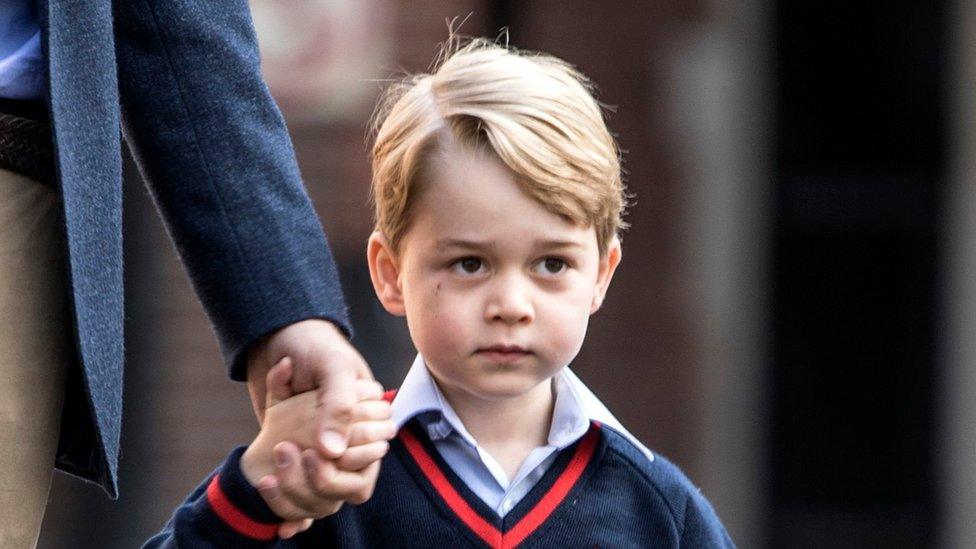
Husnain Rashid shared Prince George's photograph in tips for would-be attackers
Rashid's trial heard that on 13 October he called on supporters via Telegram to target the four-year-old Prince George, who had started school at Thomas's Battersea in south-west London a month earlier.
He also posted suggestions of which British football stadiums terrorists could strike following the deadly attack outside Besiktas's ground in Turkey, and plotted to inject supermarket ice cream with poison.
Rashid was given a life sentence for each of three counts of engaging in conduct in preparation of terrorist acts.
He also previously admitted one count of encouraging terrorism and was sentenced to four-and-half years imprisonment, to run concurrently.
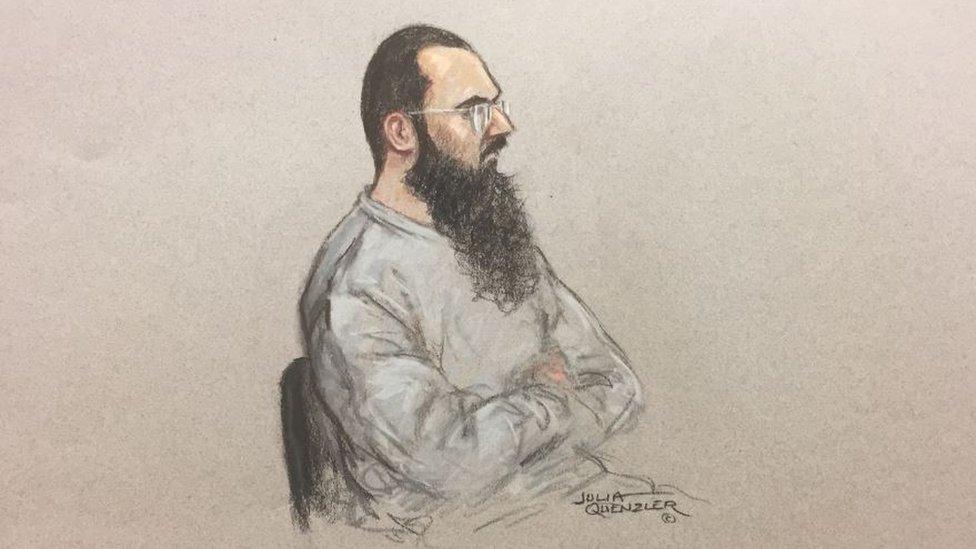
Husnain Rashid changed his plea almost two weeks into his trial
A magazine Rashid was producing contained suggestions to strike the 2018 World Cup in Russia with vehicles, weapons or bombs, his trial heard.
Rashid, who is said to have taught at the Muhammadi mosque, ran a "prolific" Telegram channel named the Lone Mujahid where he provided an "e-toolkit for terrorism", the prosecution said.
This allegedly included a recipe for the poison ricin from the Islamist propaganda magazine Inspire, how to make Molotov cocktails and napalm.
His list of targets included British Army bases, shopping centres, Jewish communities and government buildings.
He also suggested he planned to flee to Syria to fight for IS.
'Gruesome attacks'
Judge Lees said Rashid's plans were "indiscriminate" and made no distinction between adult and child, between members of fighting forces and civilians.
Police said the magazine Rashid was developing "could be described as a sort of e-toolkit for would-be lone-wolf attackers" and that he was a "prolific and dangerous individual".
Ch Supt Will Chatterton, from Counter Terrorism Policing North West, said: "Rashid had spent the past 18 months locked away in a bedroom of his parents' house where he had made links with known Isis members and spent hours making online posters and propaganda encouraging would-be terrorists to carry out the most gruesome attacks."
Mr Chatterton said detectives believed Rashid was "days away" from travelling to Syria and are in no doubt that he would have continued to promote his ideology.
He added: "He will no longer be able to spread hate and encourage senseless harm and killing. Today the world is just that little bit safer."
The offences spanned from October 2016 to April this year.
Two further charges of disseminating a terrorist publication were laid on file.
- Published23 May 2018
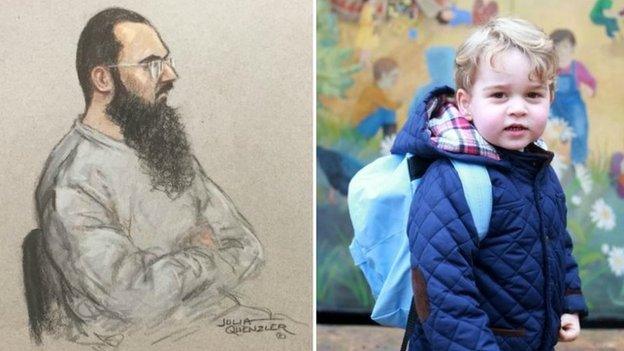
- Published30 April 2018
